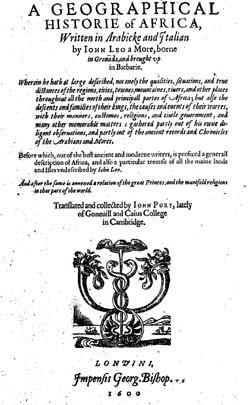This article relies largely or entirely on a single source .(September 2021) |
John Moore (died by 28 January 1572) was an English politician.
He was a Member (MP) of the Parliament of England for Leominster in 1563. [1]
This article relies largely or entirely on a single source .(September 2021) |
John Moore (died by 28 January 1572) was an English politician.
He was a Member (MP) of the Parliament of England for Leominster in 1563. [1]

Thomas Howard, 4th Duke of Norfolk, was an English nobleman and politician. He was a second cousin of Queen Elizabeth I and held many high offices during the earlier part of her reign.

Francis Russell, 2nd Earl of Bedford, KG of Chenies in Buckinghamshire and of Bedford House in Exeter, Devon, was an English nobleman, soldier, and politician. He was a godfather to the Devon-born sailor Sir Francis Drake. He served as Lord Lieutenant of Devon (1584-5).

Marquess of Winchester is a title in the Peerage of England that was created in 1551 for the prominent statesman William Paulet, 1st Earl of Wiltshire. It is the oldest of six surviving English marquessates; therefore its holder is considered the premier marquess of England. The current holder is Christopher Paulet, 19th Marquess of Winchester, whose son uses the courtesy title Earl of Wiltshire.

Baron Mowbray is a title in the Peerage of England. It was created by writ for Roger de Mowbray in 1283. The title was united with the Barony of Segrave in 1368, when John Mowbray, 1st Earl of Nottingham and 5th Baron Mowbray, succeeded to that title. His successor was named Duke of Norfolk. With the childless death of Anne Mowbray, 8th Countess of Norfolk, in c.1481, the Barony went into abeyance between the Howard and Berkeley families, and both styled themselves Baron Mowbray and Seagrave.

William Paulet, 1st Marquess of Winchester, styled Lord St John between 1539 and 1550 and Earl of Wiltshire between 1550 and 1551, was an English Lord High Treasurer, Lord Keeper of the Great Seal, and statesman.

The Captain of the King's Bodyguard of the Yeomen of the Guard is a UK Government post usually held by the Government Deputy Chief Whip in the House of Lords. The present Captain is The 9th Earl of Courtown, who was appointed to the position in the May ministry in July 2016.
Sir Robert Bell SL of Beaupré Hall, Norfolk, was a Speaker of the House of Commons (1572–1576), who served during the reign of Queen Elizabeth I.

John Hales was a writer, administrator, and member of parliament during the Tudor period.

John Pory (1572–1636) was an English politician, administrator, traveller and author of the Jacobean and Caroline eras; the skilled linguist may have been the first news correspondent in English-language journalism. As the first Speaker of the Virginia General Assembly, Pory established parliamentary procedures for that legislative body still in use today.
Events from the 1570s in England.
Robert Lougher was a Welsh clergyman, lawyer and politician who sat in the House of Commons in 1572. He was twice Principal of New Inn Hall, Oxford.
Sir Thomas Benger Master of the Revels succeeded Sir Thomas Cawarden as Elizabeth I's Master of the Revels on 18 January 1560. He served until 1572 when it appears Sir Thomas Blagrave stepped in. Benger was considered to be an ineffectual master of the revels, purely on account that a charter for his successor hadn't been drawn up at his death. Benger had been a loyal member of the Princess Elizabeth's household at Hatfield during the several imprisonments she had suffered under her sister, Mary I.

Henry Ussher was an Irish Protestant churchman, a founder of Trinity College Dublin, and Church of Ireland Archbishop of Armagh.
Sir Vincent Skinner was an English politician, who sat in Parliament for numerous constituencies.
The Mayor of Gloucester is the first citizen of the City of Gloucester, England, and acts as Chair of the council. The Mayor represents the Council and the City at civic, ceremonial and community events both inside the City boundaries and elsewhere.
Stirling in Stirlingshire was a royal burgh that returned one commissioner to the Parliament of Scotland and to the Convention of Estates.
John Aylworth, of Wells, Somerset, Dartington, Devon and Bangor Place, Holborn, London, was an English politician.
The following were mayors of Guildford, Surrey, England:

The 4th Parliament of Queen Elizabeth I was summoned by Queen Elizabeth I of England on 28 March 1572 and assembled on 8 May 1572.

John Strode, the son of Robert Strode of Parnham, Dorset and Elizabeth Hody, was elected MP for Dorset in 1572 and was Sheriff of Dorset from 1572 to 1573.